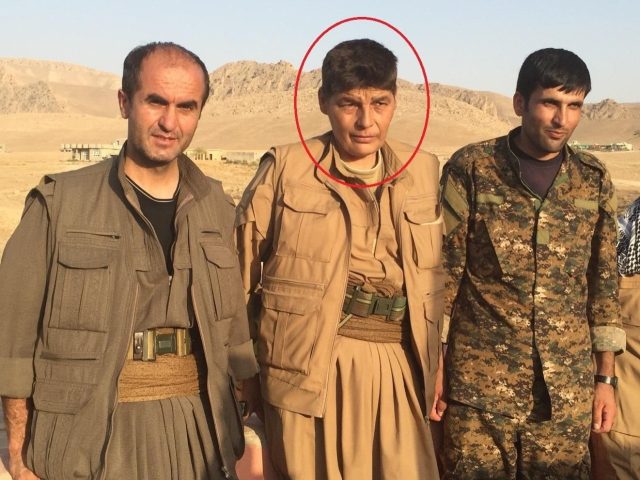Turkish authorities on Sunday revealed details of new operations against the PKK terrorist group in Syria and Iraq, the two countries where the group remains active, both in plain sight and in hiding.
An operation by the National Intelligence Organization (MIT) in Syria’s Qamishli targeted Abdülhamit Kapar, code-named “Tekin Guyi,” a prominent figure of the terrorist group in charge of its “institutions,” security sources said.
Kapar was the “director” of several branches of the YPG, the PKK’s Syria wing, from “logistics, finances, industry, prisons and the Battalion of Foreign Fighters,” sources said. He was already on the most wanted list of the Interior Ministry. Turkish intelligence has been pursuing him since he orchestrated a 1992 attack targeting a gendarmerie station in the southeastern Turkish province of Şırnak, which resulted in the killing of 26 troops and the abduction of two others. Kapar joined the group that year and stayed in Mahmour, a camp in Iraq for PKK members, until 2011. He was active in Haftanin and Hakurk, two Iraqi regions swarming with the terrorists. Since 2011, he has been in charge of training recruits and in 2014, he was appointed as the so-called representative of PKK in Iraq’s Sinjar, a city liberated from the Daesh terrorists, only to be occupied by the PKK. After serving the group in various capacities, he resettled in Syria in 2018 where he quickly rose to his current rank within the PKK. Kapar narrowly escaped from another operation by MIT in 2021.
Also on Sunday, the Ministry of National Defense announced 11 PKK terrorists were eliminated in operations in northern Iraq. The ministry said in a social media post that operations against the group were carried out in Asos and the “Claw-Lock Operation zone,” referring to a wide area in northern Iraq where Turkish troops regularly carry out strikes against the terrorist group.
The PKK launched a campaign of terrorism against Türkiye in 1984 and massacred over 40,000 people, including women, children and infants since then. The group is known for using northern Iraq, near the Turkish border, as a hideout to plot terrorist attacks and launch attacks both on nearby Türkiye and locals in north Syria.
Ankara and Baghdad have been at loggerheads over Ankara’s cross-border military operations against the PKK in northern Iraq, which is controlled by the semi-autonomous Kurdistan Regional Government (KRG). Iraq has said the operations are a violation of its sovereignty, but Ankara says they are needed to protect itself. The neighbors signed a security pact earlier this week to counter the PKK in the region. Since the start of the year, Ankara has hinted at a final summer offensive against the PKK in both northern Iraq and Syria, where the PKK operates with its local offshoot, the YPG.
Defense Minister Yaşar Güler said recently that the ongoing Operation Claw-Lock, launched in April 2022, would be completed before the winter to sever the ties between Syria and Qandil. Türkiye aims to wipe out the PKK from its borders and create an approximately 40-kilometer-deep (24.85 miles-deep) security corridor along the Iraqi and Syrian borders. Both the intelligence and the army have since ramped up strikes on the “terror corridor” in the region, indicating a wider offensive may already be underway.
The PKK relies on support from a party operating in the KRG-controlled region in Iraq as Baghdad and KRG tighten measures against the group, including a ban by Baghdad. In Syria, it boasts support from the United States, under the pretext of fighting against Daesh.
In Syria, Türkiye and Russia resumed their joint ground patrols, which were halted last October for security reasons, the Turkish National Defense Ministry said on Friday. “The joint ground patrol activity conducted by Türkiye and the Russian Federation has been resumed on Aug. 22, 2024, with four vehicles (2 Pars, 2 Kirpi-2) and 24 personnel participating in the eastern part of the Operation Peace Spring zone,” the ministry said in a statement.
“The purpose of continuing the joint ground patrol activities is to ensure the security of our country’s borders and the civilian population in the region, establish stability in northern Syria, identify control points, headquarters, and military structures belonging to the PKK/YPG terrorist organization that must exit the region according to the agreements Türkiye made with the U.S. and the Russian Federation, and to display Turkish-Russian cooperation in combating terrorism,” the ministry added.





